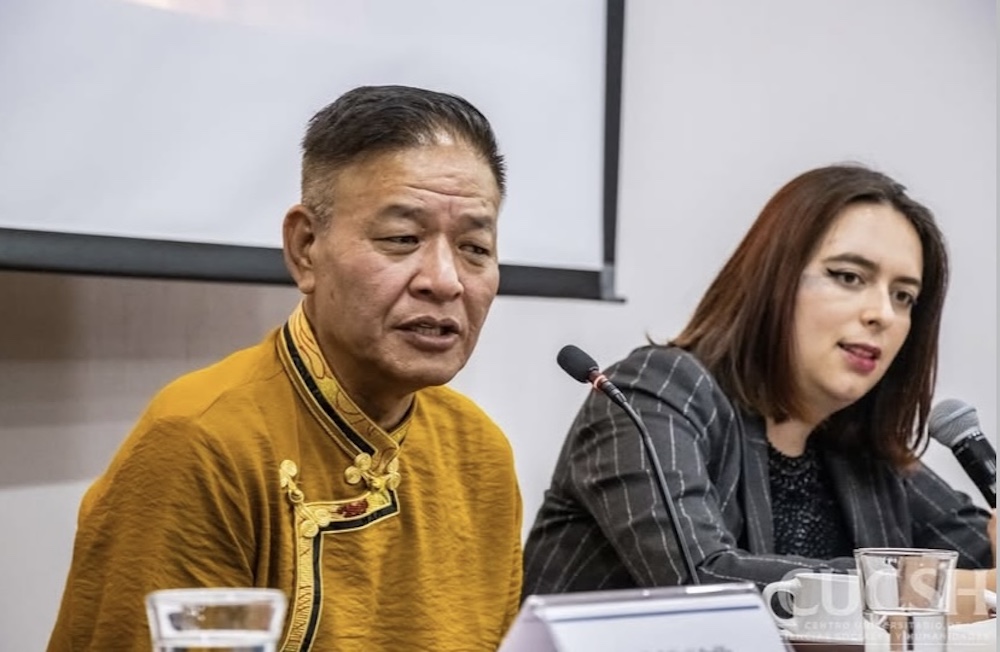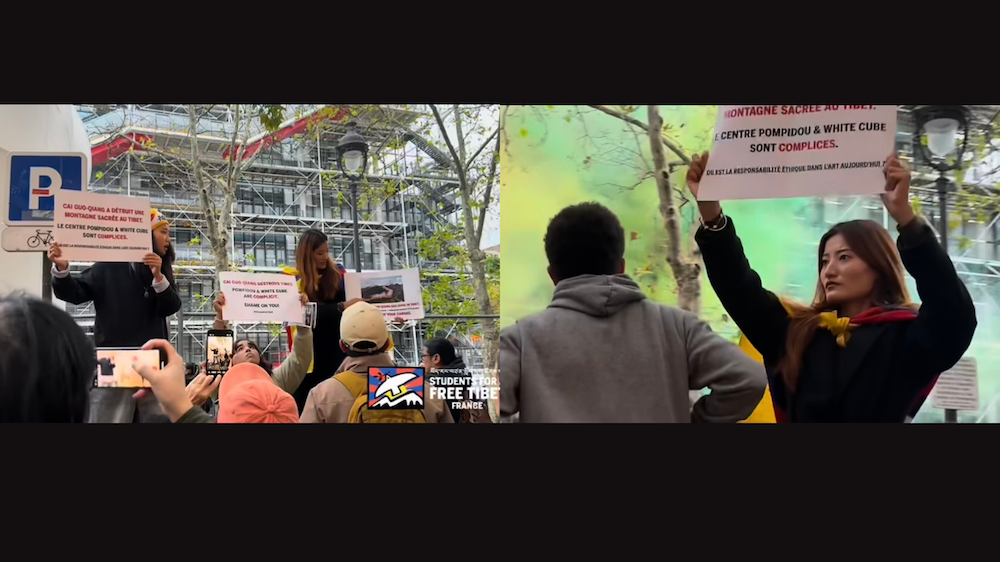By JYOTI MALHOTRA
NEW DELHI, JANUARY 21 – Having issued an appeal for an amicable resolution of the Ayodhya dispute barely a fortnight ago, the Dalai Lama’s first public appearance in Delhi today was a remarkably low-key affair. Even HRD Minister Murli Manohar Joshi, a confirmed guest till yesterday, failed to show up.
By all accounts, Joshi was on board for this morning’s function, organised by a cross-section of Tibetan groups to declare 2004 the ‘Year of Tibet’. His name had even been printed on invitation cards delivered to ministers in the Government. But late last evening the Tibetan groups learnt that Joshi had cancelled, presumably under pressure from the MEA.
With Principal Secretary Brajesh Mishra only recently back from his second round of border talks in Beijing, analysts say neither the Foreign Office nor Sangh Parivar wanted to ‘‘unnecessarily upset the Chinese’’ by allowing a senior minister in the Government to attend a Tibetan function led by the Dalai Lama.
RSS sources pointed out that although the Sangh had always supported the ‘‘Tibetan cause’’ and had decided to get involved with NGOs working in the Himalayan region, they also knew that after PM Vajpayee’s visit to China last year, ‘‘there was a time and place’’ to renew their focus on Tibet. Under the circumstances, the event was dominated by senior RSS functionary Indresh Kumar, who called upon New Delhi to persuade Beijing to begin a dialogue with the Tibetan government-in-exile.
Former journalist-turned-Tibetan activist N K Trikha said the Tibetan support groups would send one lakh postcards to the Indian Government, telling them to put pressure on China.
The RSS sources also pointed out that there was ‘‘no link’’ between the Dalai Lama’s appeal for Ayodhya and the Tibetan cause, nor did the Tibetan government-in-exile expect a quid pro quo. ‘‘Unlike the Shankaracharya, the Dalai Lama is not a party to the (Ayodhya) dispute. No Buddhist organisation has ever claimed any rights or privileges at Ayodhya. That, besides his international appeal, is already an advantage.’’
Speakers at the function, which included Samata Party MP Bashisht Narain Singh and a couple of other leftover Socialist ideologues, only reinforced the notion that the ‘Tibetan Question’, unlike in the West, had possibly spent its appeal in the Indian middle-classes.
And so it was left to the Dalai to redeem the morning at the FICCI auditorium with his message of ‘‘not seeking independence from China, but genuine autonomy for the Tibetan people’’.
Fully aware that India and China had just finished the second round of talks in Beijing, the Dalai Lama said he supported the ongoing dialogue process. ‘‘The growing Sino-Indian friendship that is based on mutual trust is very important, relations are improving and that is very good,’’ he said. ‘‘At such a moment, a message of support to Tibet by the Indian public to its leaders would be very good.’’
Tibetan sources say its leadership in exile was now hoping to start a substantive dialogue with China, after the conclusion of two visits by the Dalai Lama’s representatives to Beijing, Lhasa and other Tibetan areas. Clearly, the leadership seems to be hoping that New Delhi will also talk about a permanent settlement of the Tibetan question in their conversations with China. The last time Indian officials met the Dalai Lama and his compatriots was before the PM’s visit to China in June, when Brajesh Mishra met Tibetan prime minister in exile Samdhong Rimpoche, while erstwhile foreign secretary Kanwal Sibal called on the Dalai Lama.









